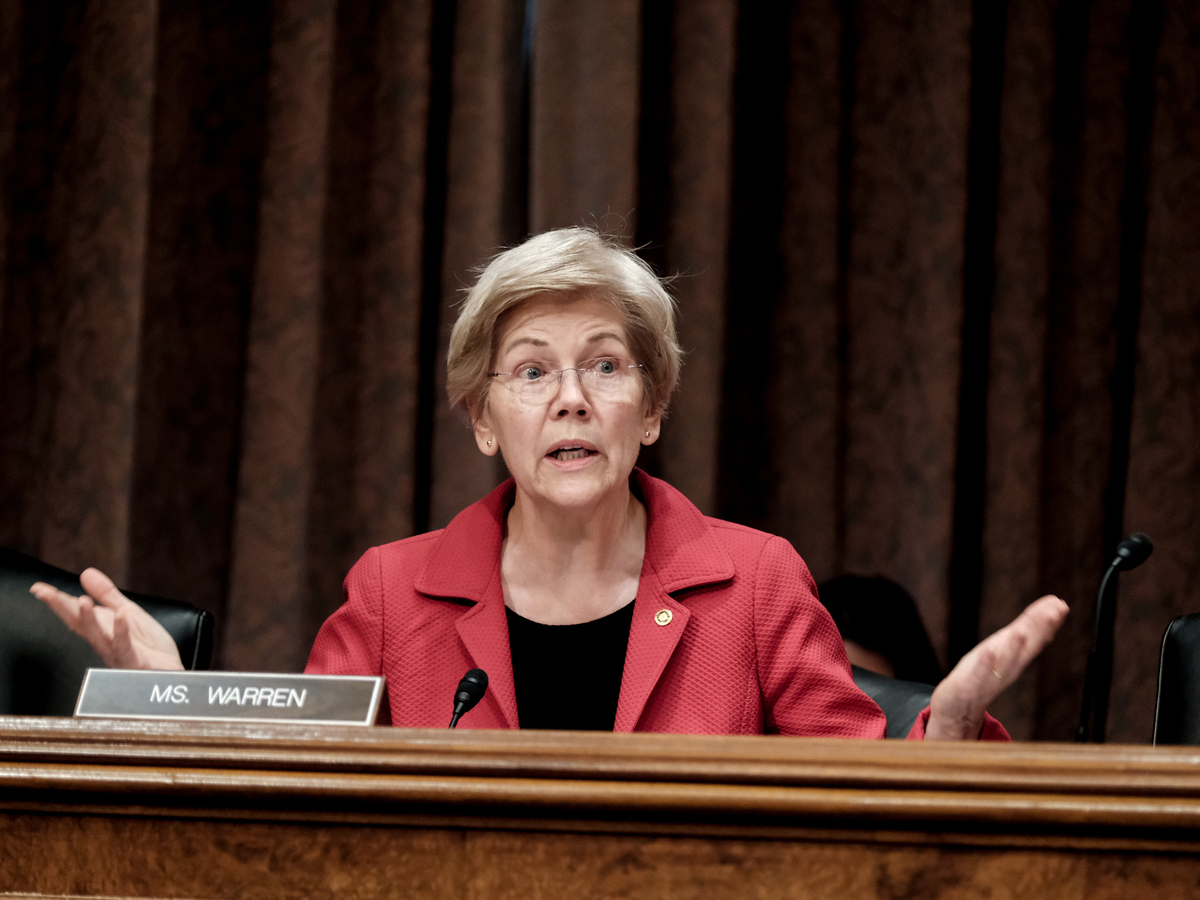
Sen. Elizabeth Warren (D-Mass.) speaks during a Senate Banking Committee hearing regarding the Consumer Financial Protection Bureau. She first proposed the idea of the agency as a Harvard Law Professor. Michael A. McCoy/Getty Images hide caption

Sen. Elizabeth Warren (D-Mass.) speaks during a Senate Banking Committee hearing regarding the Consumer Financial Protection Bureau. She first proposed the idea of the agency as a Harvard Law Professor.
Michael A. McCoy/Getty ImagesThe Supreme Court heard a case Tuesday that threatened the existence of the Consumer Financial Protection Bureau.
NPR's Nina Totenberg reports on the legal arguments in a case brought by payday lenders against the watchdog agency.
And NPR's Scott Horsley walks through the track record of the CFPB since its founding in the wake of the 2008 financial crisis.
Email us at
This episode was produced by Connor Donevan, Lauren Hodges and Gabriel Sanchez. It was edited by William Troop, Dana Farrington and Rafael Nam. Our executive producer is Sami Yenigun.

 Live Radio
Live Radio